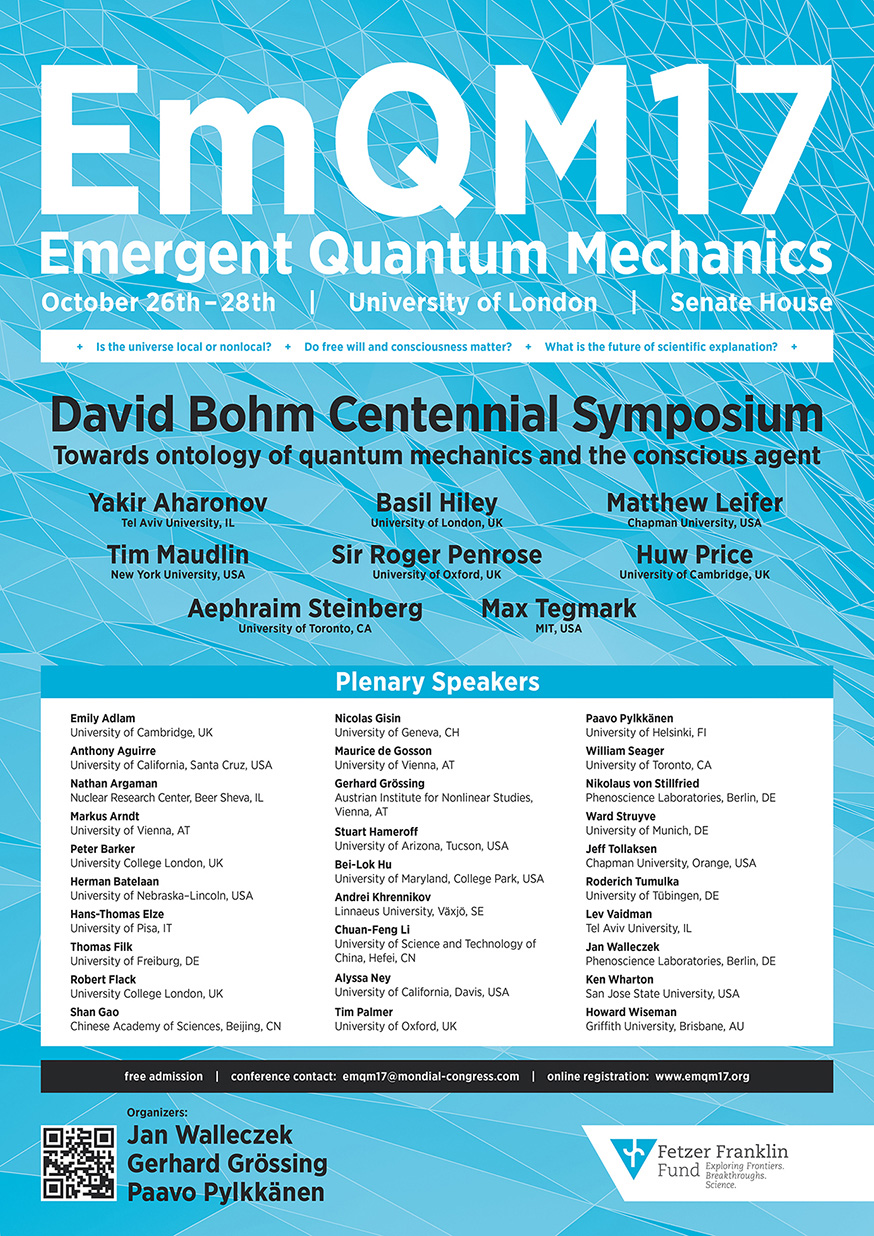Nikolaus von Stillfried
Phenoscience Laboratories, Berlin, DE
Does the wave function refer to the (proto)phenomenal? Exploring a radical hypothesis about consciousness based on a Bohm-type interpretation of quantum physics.
Presentation
Abstract
In this talk I outline two major ways in which an ontic non-collapse interpretation of the wave function, such as the one proposed by David Bohm, is exciting for philosophers in search of a theory of consciousness. Firstly: The so called combination problem is generally seen as a major objection to panprotopsychist approaches such as ‘Russelian Monism’. But if the wave function refers to a fundamental element of reality this problem does not arise, because the wave functions of individual interacting quanta are combined in a joint wave function. Secondly: A distinct ontic category seems required to account for the element of reality to which the wave function refers. The precise nature of this ontic category is still subject to much debate. David Bohm pioneered the idea that it might be protophenomenal when he spoke about the possibility that “even an electron has at least a rudimentary mental pole, represented mathematically by the quantum potential.“ (Bohm, 1990, p. 284; Bohm and Hiley, 1993, p. 381). This proposal combines the advantages of dualism and physicalism by assigning to consciousness an irreducible ontic category without having to expand our model of reality. As with all existing theories of consciousness, its main problems to date lie in a lack of both empirical testability and established logical necessity.
References: Bohm, D.J. (1990) A new theory of the relationship of mind and matter. Philosophical Psychology 3(2/3): 271-286.
Bohm, D.J. and Hiley, B.J. (1993) The Undivided Universe: An ontological interpretation of quantum theory. London and New York: Routledge.
![]()


